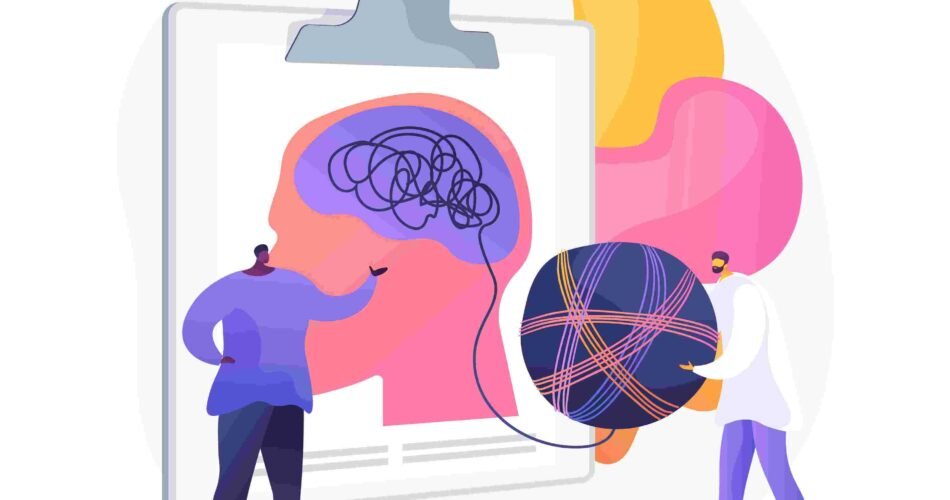Understanding the Psychology of Anxiety: Causes, Effects, and Management
Anxiety is a common emotional response that many people experience in their daily lives. It can manifest in various ways, such as feeling restless, having racing thoughts, or experiencing physical symptoms like a rapid heartbeat or shortness of breath. While occasional anxiety is a normal part of life, excessive and persistent anxiety can be debilitating and interfere with daily functioning.
The Nature of Anxiety
Before delving into the psychology of anxiety, it is important to understand its nature. Anxiety is often characterized by a sense of unease, worry, or fear about a future event or outcome. It is a natural response to perceived threats or dangers, preparing the body to either confront or flee from the situation.
However, when anxiety becomes chronic and disproportionate to the actual threat, it can significantly impact an individual’s well-being. Understanding the psychology of anxiety can help shed light on its underlying causes and provide effective strategies for managing and reducing its impact.
Causes of Anxiety
Anxiety can stem from a variety of factors, including genetics, brain chemistry, personality traits, and life experiences. While everyone experiences anxiety differently, there are several common causes that contribute to its development:
- Genetics: Research suggests that certain genetic factors can predispose individuals to anxiety disorders. If a close family member has an anxiety disorder, there is an increased likelihood of developing one as well.
- Brain Chemistry: Imbalances in brain chemicals, such as serotonin and dopamine, can contribute to the development of anxiety. These neurotransmitters play a crucial role in regulating mood and emotions.
- Personality Traits: Certain personality traits, such as being highly sensitive or having a tendency to worry excessively, can make individuals more prone to experiencing anxiety.
- Life Experiences: Traumatic events, such as abuse, loss, or a significant life change, can trigger or exacerbate anxiety. Chronic stress or ongoing life challenges can also contribute to the development of anxiety disorders.
The Cognitive-Behavioral Model of Anxiety
The cognitive-behavioral model provides valuable insights into understanding the psychology of anxiety. According to this model, anxiety is influenced by our thoughts, beliefs, and behaviors. It suggests that individuals with anxiety tend to have distorted thinking patterns and engage in maladaptive behaviors that maintain or worsen their anxiety symptoms.
Here are the key components of the cognitive-behavioral model:
- Thoughts: Anxiety is often fueled by negative and irrational thoughts. These thoughts can be automatic and occur without conscious awareness. Cognitive distortions, such as catastrophizing or overgeneralizing, contribute to the intensity of anxiety.
- Beliefs: Core beliefs, which are deeply ingrained assumptions about oneself, others, and the world, can influence the development and maintenance of anxiety. For example, someone with a belief that they are always in danger may be more prone to experiencing anxiety.
- Behaviors: In response to anxiety, individuals may engage in avoidance behaviors or safety-seeking behaviors. Avoidance behaviors involve avoiding situations or activities that trigger anxiety, while safety-seeking behaviors are actions taken to reduce anxiety in the short term.
Managing and Reducing Anxiety
Understanding the psychology of anxiety is the first step towards managing and reducing its impact. While it may not be possible to eliminate anxiety completely, there are effective strategies that can help individuals cope with and alleviate their symptoms:
- Cognitive Restructuring: This involves identifying and challenging negative and irrational thoughts. By replacing them with more realistic and balanced thoughts, individuals can reduce the intensity of their anxiety.
- Relaxation Techniques: Practicing relaxation techniques, such as deep breathing, progressive muscle relaxation, or mindfulness meditation, can help calm the mind and body during times of anxiety.
- Exposure Therapy: Gradually exposing oneself to feared situations or triggers can help desensitize the anxiety response. This approach, guided by a mental health professional, can help individuals build confidence and reduce avoidance behaviors.
- Lifestyle Changes: Engaging in regular physical exercise, maintaining a healthy diet, getting enough sleep, and reducing stress can have a positive impact on anxiety levels.
- Seeking Professional Help: If anxiety significantly interferes with daily functioning or causes distress, it is important to seek professional help. Mental health professionals can provide specialized interventions, such as cognitive-behavioral therapy or medication, to effectively manage anxiety.
Conclusion
Anxiety is a complex psychological phenomenon that can have a significant impact on individuals’ lives. By understanding the psychology of anxiety, we can gain insights into its causes and effective strategies for managing and reducing its impact. Whether through cognitive restructuring, relaxation techniques, exposure therapy, lifestyle changes, or seeking professional help, it is possible to regain control over anxiety and lead a fulfilling life.
